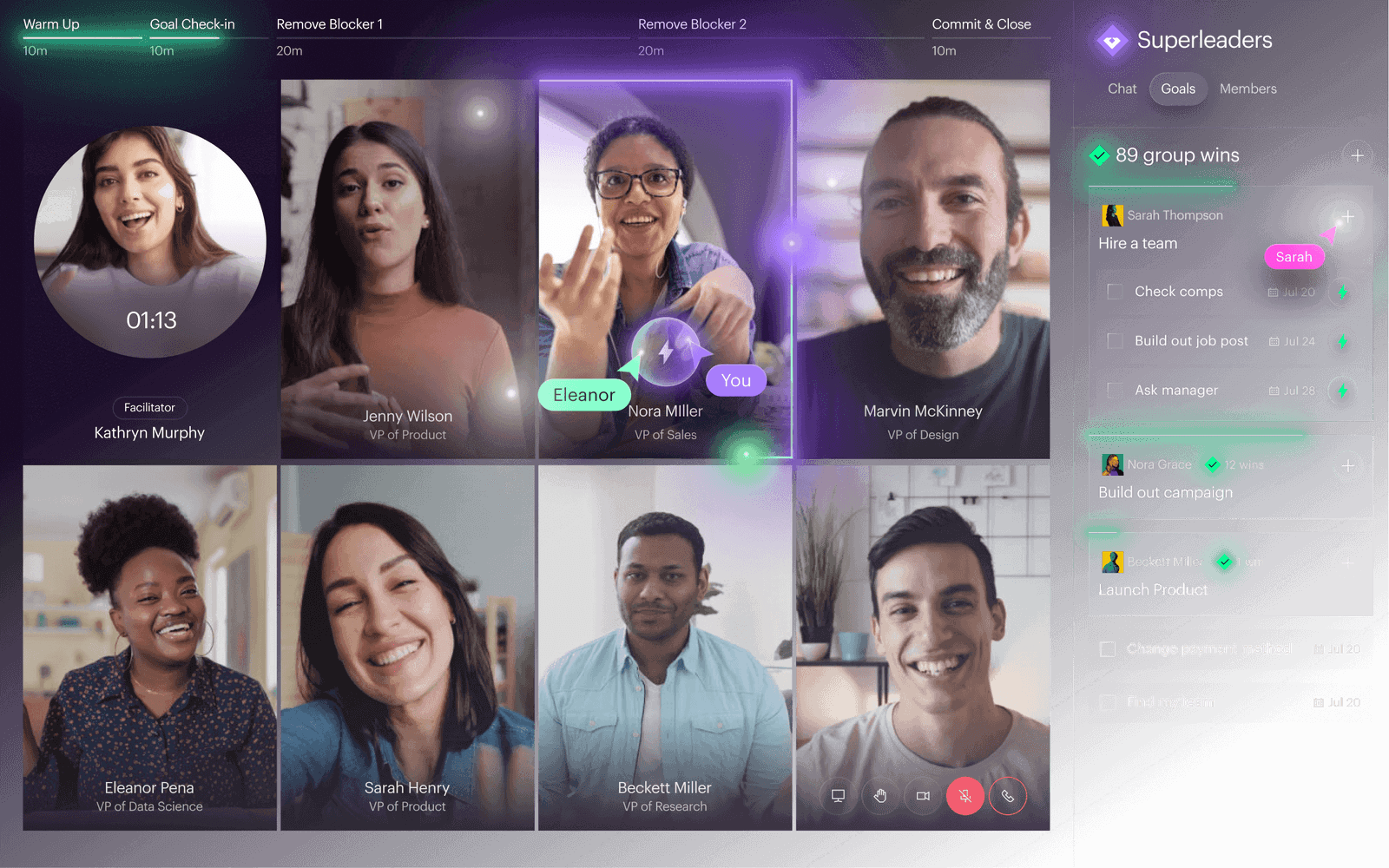Sidebar, a company developing a group coaching program focused on driving individual career growth, today announced that it raised $13.55 million in a seed round from investors including Foundation Capital, Scribble Ventures and Pinterest co-founder Evan Sharp.
Former Facebook product manager Lexy Franklin founded Sidebar after running into challenges finding supportive peer groups while at Meta.
“I was a product manager lead at Facebook surrounded by some of the smartest people in the world, and my goal was to learn as much as possible from them,” Franklin told TechCrunch via email. “There was plenty of room to collaborate, but there wasn’t an easy forum to consistently learn from the experience of my peers. I thought, if this was challenging at Facebook … it was probably a problem everywhere.”
Peer groups or no, career dev isn’t a solved science — that’s true.
In a 2022 survey conducted by Oracle and Workplace Intelligence, an HR research firm, 76% of workers said that they feel stuck in their personal lives, 31% are apprehensive about their futures, 27% are locked in the same routines and — thanks to pandemic- and work-from-home-induced isolation — they’re lonelier than ever before (26%). Yikes.
Sidebar, like other upskilling platforms on the market (see: GrowthSpace, Workera, Learnsoft and so on), provides a tool suite designed to support employees’ career advancement. But unlike some of its competitors, Sidebar leverages small peer groups to attempt to foster better guidance — and greater accountability — in workers’ journeys.
An algorithm matches people into these peer groups based on their level and role, like “CEO” or “senior leader,” as well as their background and interests. It also takes into account whether or not a person is in “transition,” as in whether they’re looking to remain in their current role or transition to a new one inside or outside of their company.
Franklin claims that Sidebar’s algorithm emphasizes “diversity and inclusion,” with the goal of “demographically balancing” each of the peer groups. “We want to ensure a range of perspectives, and we take care to ensure no one feels like the ‘only’ member of any demographic group,” he added.
Given matching algorithms’ well-established history of bias, I’m skeptical. But Franklin says that Sidebar periodically — and sometimes upon request — “calibrates” groups to prevent biases from taking root. And the bulk of Sidebar’s features aren’t algorithm-dependent, fortunately.
Once Sidebar establishes the peer groups, which range in size from eight to 10 people plus a group “leader,” the platform facilitates twice-a-month, 90-minute group meetings on proprietary videoconferencing software. For these meetings, Sidebar provides materials encouraging members to achieve their career goals and overcome blockers. In the interest of privacy, member aren’t allowed to discuss their places of work, projects or even their names.
Members also get access to a goal tracking module, messaging features, a live events series, community forums, resource libraries and session recordings.

“Sidebar members challenge, encourage and hold each other accountable as they’re led through a research-based program by a professional facilitator,” Franklin said. “All of our members are engaged in the program, working through the curriculum and attending the twice-monthly group sessions, so their membership can’t gather dust on their bookshelf or LinkedIn profile.”
The cynic in me wonders whether a “best-in-class” leader exists for every possible peer group. I’d think it’d be a difficult model to scale.
Recognizing this, no doubt, Sidebar doesn’t let just anyone become a member. Prospective users have to submit an application and agree to an interview, and only those that meet one of several criterion — including 10-plus years of experience in their field, founders who’ve started a company or a referral from an existing Sidebar member — qualify.
It’s not the most inclusive model — and that’s before factoring in the steep cost of membership ($3,600 annually). But Franklin asserts that it’s Sidebar’s way of building groups with a strong “growth mindsets.”
“Networks have benefits, programs have outcomes,” Franklin said. “There are other platforms primarily focused on marketing your professional self or connecting with other professionals, while Sidebar is unique in that it’s a personalized career growth program. Some networks even offer specific skill building, like workshops on negotiating or content like best practices for fundraising. That’s not the same as a comprehensive program where someone is setting clear goals, measuring their progress and developing their whole professional self with similarly-focused peers.”
Sidebar has 5,000 people on its waitlist, Franklin claims, and an “impressive” group of early members. He wouldn’t indicate how large that member group is beyond a ballpark estimate — “hundreds” of people. But Franklin did say that some companies have begun sponsoring Sidebar memberships for their employees.
Sidebar’s staff sits at 20 people currently, and the funding will allow the startup to hire engineers and scientists to build “even better algorithms to match people and new and innovative ways to collaborate through our virtual platform and other member tools,” Franklin said with enthusiasm.
In the more distant future, Sidebar might consider expanding the platform to offer some — or all — of its tools to HR departments through their benefits or training and development functions. But Franklin had nothing specific to announce when we spoke.
“Our program also features professional facilitators, so we’re looking for more people to help our members reach their career goals,” Franklin continued. “And, of course, we’re adding to many of the other functions a growing company needs to operate.”































Comment